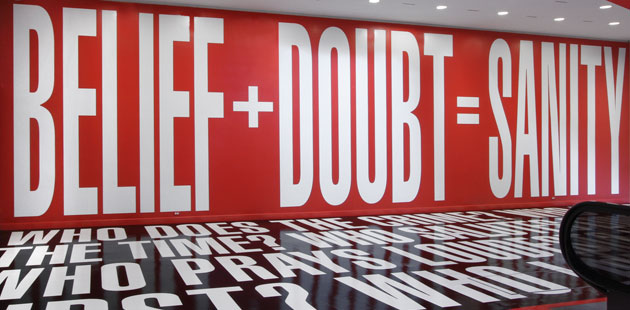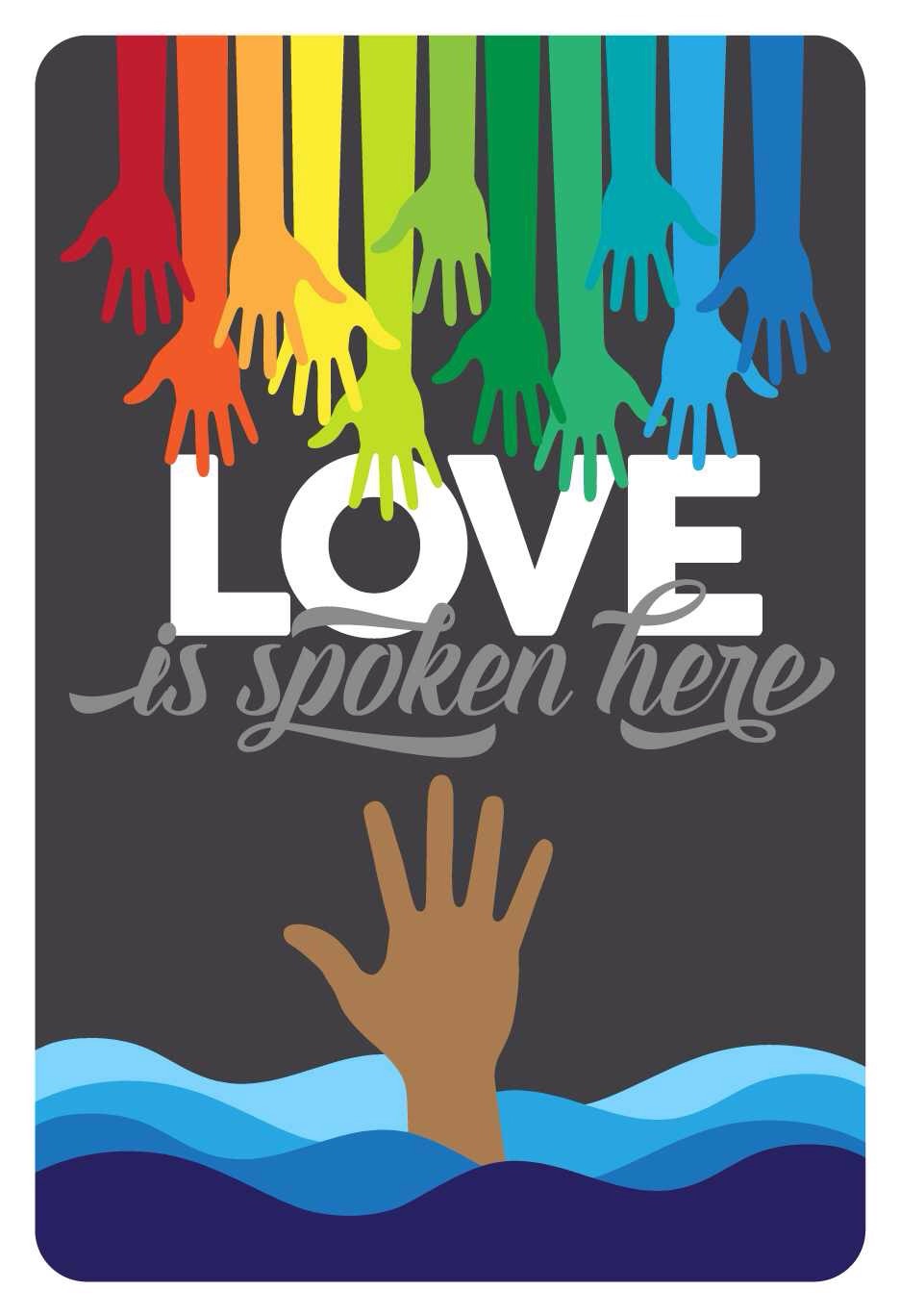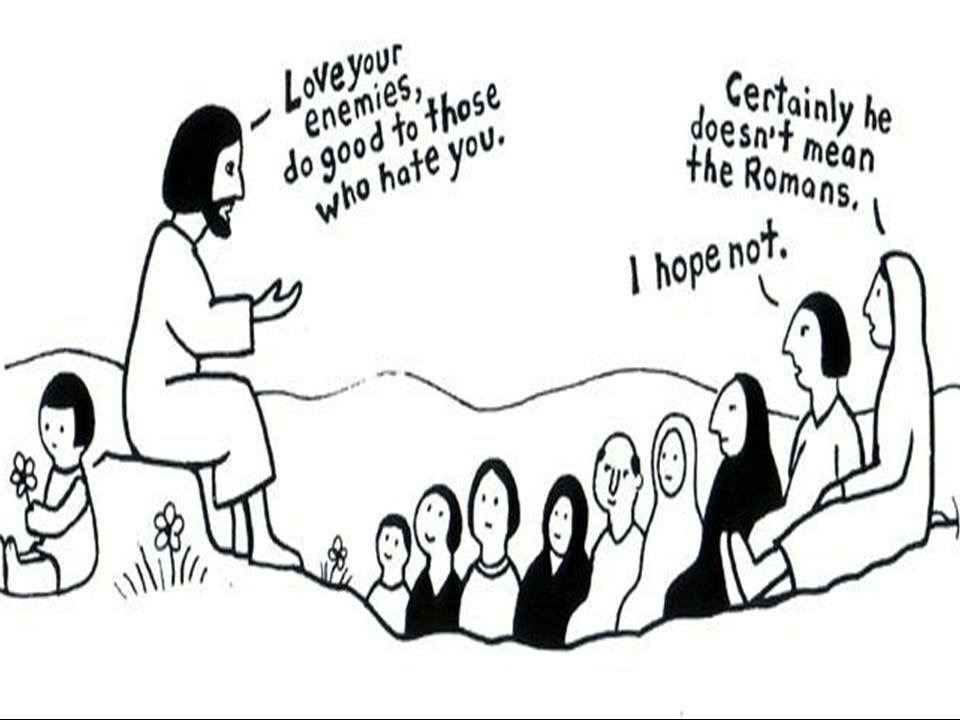I know a lot of people might answer that question a lot of different ways; here's the Jeopardy "answer" from Dec. 20th last week. (Category was "Prophets")
God Has No Grandchildren
12 hours ago
Cutting my own path...
Q: As a Mormon, how did you end up at Oregon rather than BYU? — @c_drew
A: BYU blew it. They dropped the ball. (Laughs) At first they didn’t offer me a scholarship until somebody else did. They were like, “Ah, you’re a big LDS kid, you’ll just walk on.” As soon as Oregon and some other schools showed interest, they were like, “Hey, yeah, we want you too!” Then they said they needed to know right away, but I said I hadn’t figured it all out yet, and so they said they were going to give the scholarship to somebody else. Then they called me back, and visited my high school the next day, and basically told me I’d be a bad Mormon if I didn’t go to BYU. I was like, “Jeez, great, that really makes me want to come!” They just blew it. They did a terrible job of recruiting me. And Oregon didn’t. Oregon did a great job.
...Life seemed simpler before the events in my life caused me to question everything. Going to church was something I anticipated, and it felt like welcome relief. General Conference was a charging of my spiritual batteries, and I derived great comfort from things like the Ensign. It’s not so much that I was ignorant of the problems in the church, nor did I understand or believe every aspect of the Gospel. There were doctrinal struggles, even then. But I derived happiness from my certainty, from my feeling, from my intuition, or from the Spirit (whatever that might mean). It’s also not that I now constantly bicker with church leaders, or criticize each talk and lesson when I go to church. Indeed, at church I usually don’t say much, but listen carefully to try and learn. It’s really about what’s going on in my mind, the nagging voice that feels the urge to constantly correct, analyze, and thoroughly dissect each idea, sentence, and thought.
In short, I no longer feel when I go to church, I only think. And that, I’m afraid, sums up the problem when the analyst is the only one who shows up. And yet, I really do want to go to church and so I continue to go and slog through the analysis. I know what is possible there. I remember the feelings, the certainty, the truth. And still, even though I know (and don’t want) that certainty anymore, even though I’m happy with my outlook on life now, I believe I can allow myself to experience the feelings that were there if I can remind myself what it’s like to feel rather than analyze them....
He did not believe in suppressing information, hiding documents, or concealing or withholding minutes for 'screening.' He thought we should publish the documents of our history. Why should we withhold things that are a part of our history? He thought it in our best interest to encourage scholars--to help and cooperate with them in doing honest research. Nevertheless, Hunter counseled me to keep in mind that church members reverenced leaders and their policies. To investigate too closely the private lives of leaders and the circumstances that led to their decisions might remove some of the aura that sanctified church policies and procedures. If the daylight of historical research should shine too brightly upon prophets and their policies, he cautioned, it might devitalize the charisma that dedicated leadership inspires. I accepted Hunter's counsel as a mandate for free and honest scholarly pursuit, with a warning that we must be discreet."("Adventures of a Church Historian" by Leonard Arrington, p. 84)
A stunning examination of racial issues within the Church of Jesus Christ of Latter-day Saints, Nobody Knows: The Untold Story of Black Mormons traces the history and experiences of African Americans in the Mormon church from the church's beginnings in 1830, through the Civil Rights Movement, to the present day. At the heart of the debate lies the churches denial of the priesthood and most sacred privileges of the faith to its African American members – denials that were reversed in 1978 with a historic "priesthood revelation".
"I believe 'the truth' can be both constructive and therapeutic. My fellow church members have a right to an understanding of the matters I discuss. I do not wish to do harm to anyone or any good cause. Above all, I believe that Latter-day Saint readers, as well as my children and close friends, have a right to this personal recital of their father's, friend's, and leader's experience in a key post in the kingdom of God. I hope that readers will be reassured by the words in 2 Nephi 9:40: 'The words of truth [may be] hard...; but the righteous fear them not, for they love the truth and are not shaken" (p. 6).Arrington took unique inspiration for his approach from the writers of scripture, as he states in the introduction:
"Biblical writers had an insistent tendency to avoid hiding or concealing the sins and misdeeds of the persons they wrote about, whether they were the chosen people of Israel or individual prophets, patriarchs, and apostles. Moses, the greatest character in the Old Testament, and Peter, the apostle of Jesus, are three-dimensional persons, capable of both error and wondrous uprightness. Even Jesus once lost his temper with a fig tree (Matt. 21:19); but he also remembered that a little girl, when she recovered from a fever, would be extremely hungry (Mark 5:38-42)."THIS is the kind of perspective I crave. While it may be easier to gloss over weaknesses and mistakes of church leaders, I believe there is much to be learned from those too. As Arrington wrote, "We may not be edified by every move they made, but we are warmed by their humanity." I don't want a caricature, but neither do I want an idealistic-only view that ignores reality. I want the "nitty gritty". I appreciate objectivity and honesty. This is why I love biographies like Rough Stone Rolling, David O. McKay and the Rise of Modern Mormonism, and Lengthen Your Stride: the Presidency of Spencer W. Kimball.
"...their approach [that of scriptural authors] suggests that salvation comes from the Lord, not from divinely appointed leaders..."
"Nor did Book of Mormon prophets hesitate to find fault with the church of their day. Nephi, for example, charged that those inclined to proclaim uncritically 'all is well in Zion' (2 Nephi 28:21-29) were following the precepts of men. As we write we must 'behold our weakness' (Ether 12:25) and write with integrity to ourselves and to God. Or, as Will Rogers said, 'It's great to be great, but it's greater to be human.' In any case, I have endeavored, as did the Apostle Paul, to 'speak the truth in love' (Eph. 4:15)."
"General authorities of the church and general church officers, for reasons of policy or personal preference, have chosen not to leave autobiographical public records of their dealings and associations with each other, so that church members have no way of knowing what goes on inside church headquarters. Do general authorities ever disagree? What are they like as human beings when they shed their official status as prophets, seers, and revelators? Along with their significant strengths are there also weaknesses--or at least misunderstandings? This book seeks to give some glimpses of the spiritual and organizational aspects of Mormon history and historiography that may add another dimension to understanding LDS life and leadership"...Here's to more of this balanced approach to writing history. Surly some on the far right will continue to view it as "negative" and others on the far left might view it "insufficiently critical", but I cast my vote for (and voice my appreciation for) a moderate approach that strives for balance.
..."When he wrote the authorized biography of J. Reuben Clark Jr., Frank Fox was advised by Clark's literary executor, Marion G. Romney, as related in the book's forward: 'Any biographer of President Clark must write the truth about him; to tell more than or less than the truth would violate a governing principle of his life. When I first met with those who are writing his biography, I explained that I did not want them to produce a mere collection of uplifting experiences about President Clark (although I knew that numerous such stories could be told), nor did I want a detailed defense of his beliefs. I wanted a biography of the man himself, as he was, written with the same kind of courage, honesty, and frankness that J. Reuben Clark himself would have shown. An account of his life should tell of his decisions and indecisions, sorrows and joys, regrets and aspirations, reverses and accomplishments, and above all, his constant striving to overcome any and all obstacles.'"

THE PARABLE OF THE PIE:
If I bake a pie (imagine your favorite, mine’s definitely blackberry), and invite you over, even when you don’t deserve it, cut a piece out, hand you a fork, and put some ice cream on top. Now there’s a choice, you could sit there and talk about how nice it was for me to make the pie, and talk about how good of a baker I am, or how awesome I am to not require you to do anything to get the pie. But until you choose to actually eat any of the pie, you won’t really know how good it tastes. Would you have gained from the pie without having eaten it, no. Yet, would you really claim boasting rights, or consider it an achievement that you actually ate the pie. Of course not.
From the Mormon point of view, eating the pie is the equivalent of [having faith in Christ, repentance], submitting to baptism and receiving the gift of the Holy Ghost...[followed by] a life of discipleship. That is how you “come unto Christ.” That’s how you partake of His grace. But just like we didn’t earn the pie, we also don’t enjoy it unless we eat it.
[One might ask]: “Have I not then become, in a sense, a co-savior with Christ?”
And I would answer: “Not unless you also become a co-baker with me for eating my pie.”
The pie is the salvation that Christ has prepared for us, but we MUST choose to follow him, yet we don’t earn the salvation. He moved first, He provides, He saves, but we must react positively and obediently to His message. “Why call ye me, Lord, Lord, if ye do not the things which I say unto you.”
Now it’s true Christ doesn’t cut the slice out for everyone, and doesn’t hand the fork to everyone, but He has made the pie for everyone, and invited everyone to come and have some. Those who know the sweetness of that pie, know that Christ is the Baker thereof, and we [wouldn't trade it for any other substitute]."
.jpg) "You could say that I was born Mormon and will likely die Mormon. Why then am I always interrogating my own faith? I am always asking why I believe. What do my beliefs mean? How can they be explained and justified? I have sympathy for questioners because I am a questioner too. Settled as faith is in my own life, I understand why people doubt. I see in questioning something deeply religious as well as deeply human..." --Richard Bushman, Mormon Scholars Testify
"You could say that I was born Mormon and will likely die Mormon. Why then am I always interrogating my own faith? I am always asking why I believe. What do my beliefs mean? How can they be explained and justified? I have sympathy for questioners because I am a questioner too. Settled as faith is in my own life, I understand why people doubt. I see in questioning something deeply religious as well as deeply human..." --Richard Bushman, Mormon Scholars Testify





